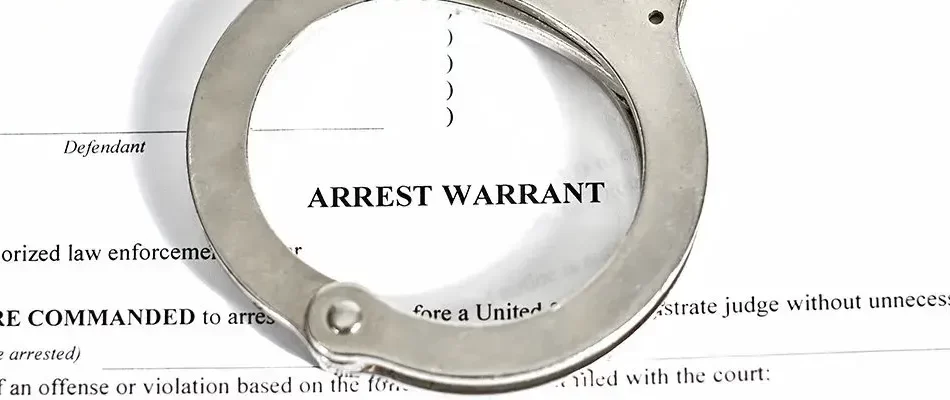Possession – The Essential Element | Harris & Harris Law Group, PLLC

Harris & Harris Law Group, PLLC
Arrest warrants are orders that are issued that allow an agency or police officer to arrest someone. Hopefully, you never find yourself with an active warrant, but it happens. When it does, you want to be prepared by knowing how to handle the situation.
If you know about an active warrant, an attorney can often help resolve the situation at minimum inconvenience to the client, so it’s important to reach out as soon as you become aware of the warrant.
Here are a few things to do that may help minimize your inconvenience.
Try to Get as Much Information About the Warrant.
Frequently people find out about warrants during a traffic stop or while renewing a license. Depending on the charge, and how nice you are to the officer, they may let you go so that you can take care of it. I’ve seen officers let individuals go on Class C and misdemeanor warrants, with the understanding that the individual would take care of the matter.
Once you learn about the warrant, try to find out if it’s for a Class C ticket, a Class A or B misdemeanor, or for a felony. Ask what shows up on the warrant and what city or county issued the warrant (this information will help you or your attorney, later on).
Contact an Attorney to Have Them Help You Clear up The Warrant.
With the information that you have learned, contact an attorney to help you get the warrant cleared.
For a Class C warrant, an attorney can usually post an attorney bond and clear the warrant. This requires the attorney to get the information of the warrant, fill out the attorney bond paperwork and post the bonds. Once that is complete, the warrant is lifted.
However, for Class A and B misdemeanors and felonies, there is generally additional work that needs to be done, and is different from county to county. Some counties allow a walk-through, meaning that as long as the bondsman is prepared to post the bond, the county will allow the client to be processed without having to go into custody. The attorney can work on the coordination of this process, if the county offers this option. Sometimes, a walk-through isn’t an option. In these cases, you want the attorney to coordinate the surrender and book-in process, so you spend the least amount of time in custody while they execute the arrest warrant and process your bond.
Find out If the Warrant Has a Bond Amount, and Contact a Bondsman.
Bondsmen will usually charge you about 10% of the overall bond amount. For instance, a bondsman may charge $175.00 for a $1,000.00 bond. This means that you pay the bondsman the 10% and they are on the hook for the S1,000.00, if you fail to show up at court. The bondsman will fill out the paperwork stating that they will post your bond in the amount of the bond. This paperwork is what is sent to the jail that allows for the individual’s release. Having a bondsman lined up is important because they can send the bond over, if you are arrested and taken to jail, helping you get released from custody much faster than if you didn’t have a bondsman lined up in advance.
Make Sure You Have Notified a Few Family and Friends, Letting Them Know You Have a Warrant.
The last thing you want is to be picked up, and no one knows where you are. Be sure to let a few trusted family or friends know about your warrant, including important details such as the county issuing the warrant. If for some reason, no one hears from you, you want to be sure people know where to possibly find you.
Make Sure to Memorize Phone Numbers for Two Friends or Family Members so You Can Call and Let Them Know if You Are Picked up Or Arrested.
In today’s times, we don’t have to memorize phone numbers anymore. Our cell phones store everything, including our contacts. But, if you are taken into custody, the jail will put your phone in your property and oftentimes lose immediate access to it and all the information it contains. Please, be sure to know a couple of phone numbers, by memory, so you can call to let someone know you are in jail. They can then implement the plan that you have prepared by following the previous steps laid out earlier.
If you know you have an active warrant, call Harris & Harris Law Group, PLLC today so we can help you get your plan together.

